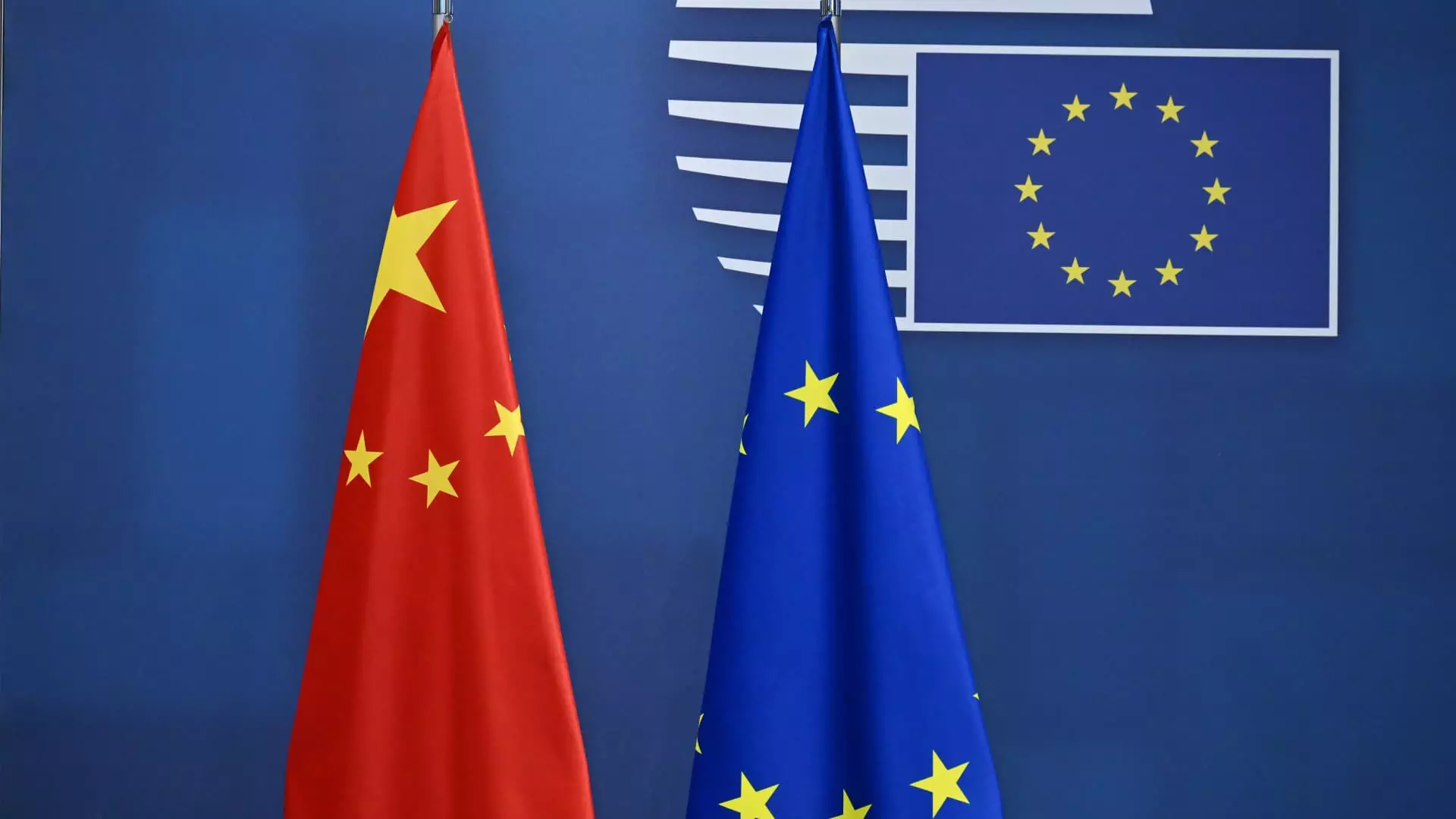In recent months, the world has watched as the delicate fabric of international commerce becomes increasingly frayed by persistent rivals—particularly China and the European Union—whose trade tensions threaten the prospects of a stable global economy. While the U.S. tariff saga has dominated headlines, the real danger lies in the less visible, yet equally destabilizing, confrontations between these economic powerhouses. The mounting hostility signals that we are witnessing a profound shift—one where cooperation is replaced by suspicion and strategic posturing. The stakes are high, and the risk of economic fragmentation intensifies with each restrictive measure, tariff hike, and retaliatory act.
A closer examination reveals that these tensions stem from fundamentally incompatible economic strategies. The EU’s efforts to fortify its industry through protective measures clash with China’s long-standing drive to export and maintain production overcapacity. This collision is not just a simple clash of interests but a symptom of broader geopolitical ambitions—an encroachment of aggressive trade tactics that threaten to undermine the very norms of multilateral global trade. What was once a promising partnership now appears as a battleground, with each side viewing the other as a threat to their economic well-being.
The Erosion of Trust and Growing Hostilities
The fundamental problem lies in mutual distrust. The EU has responded to Chinese trade practices with restrictions—ranging from limits on Chinese companies participating in tenders for medical devices to tariffs on products like brandy. China, in turn, retaliates, imposing import restrictions that escalate the cycle of hostility. Such tit-for-tat measures serve only to deepen the divide, reinforcing the idea that both parties see each other as enemies rather than partners.
This deterioration is exacerbated by the opaque nature of Chinese industrial policies, which many European analysts view as a deliberate attempt to weaponize trade. For instance, Beijing’s export restrictions on rare earth elements—a crucial resource for modern technology—illustrate how trade could morph into a tool for geopolitical leverage. The EU’s pursuit of strategic autonomy, aimed at reducing dependence on China, is met with fierce resistance from Beijing, which perceives these efforts as a threat to its own economic ambitions. This mutual antagonism creates a zero-sum scenario where cooperation becomes increasingly impossible.
The Illusory Hope in U.S.-China Relations
A glimmer of opportunity was once perceived in the recent US-China trade negotiations. Some believed that the U.S. tariffs and the resulting economic pressure would push both China and Europe to seek common ground. Instead, the opposite has occurred. Beijing, bolstered by its apparent gains in its trade conflict with Washington, feels less compelled to seek compromise. The Chinese leadership perceives itself as emerging victorious, which diminishes the urgency to accommodate European concerns.
This newfound confidence translates into more aggressive trade tactics, such as using export controls and threat of tariffs as bargaining chips. The strategic calculus appears to favor confrontation over cooperation, especially as China consolidates its position and refuses to budge on contentious issues like rare earths exports. The irony is palpable—what was once a potential catalyst for alliance-building amid U.S. tariffs is now fueling further divergence. The global economic landscape becomes increasingly polarized, with each side doubling down on nationalist economic policies.
The Future of EU-China Relations: A Ticking Time Bomb
Predicting the path forward is a difficult endeavor, but pessimism prevails among experts. Many warn that the current trajectory points toward intensified frictions rather than resolution. The European Union, asserting its desire for strategic autonomy, is deploying protectionist measures that China perceives as hostile acts. Meanwhile, China’s refusal to back down from export controls and industrial subsidies hardens the divide.
The upcoming EU-China summit in Beijing adds to the skepticism. With high-level meetings already strained, chances for meaningful dialogue appear slim. Leaders seem resigned to a future marked by increasingly tough negotiations and unresolved disagreements. The risk is that these accumulating tensions may spill over into broader financial and geopolitical arenas, destabilizing not just the economic relationship but also global peace and security.
The Broader Implications for Global Stability
In essence, what is unfolding is a geopolitical chess match masquerading as trade disputes. The insatiable push for market dominance, combined with strategic ambitions, risks transforming the global economy into a battleground where cooperation is an afterthought. As trade war rhetoric intensifies and retaliations become the norm, the interconnectedness that once fostered growth and prosperity threatens to unravel.
This burgeoning rivalry underscores a sobering reality—economic conflicts today are less about market efficiencies and more about consolidating worldwide power. The danger lies in the potential decoupling of global supply chains, increased economic volatility, and the erosion of international institutions designed to manage trade disputes. The stakes are monumental, and the current climate offers little hope for swift resolution, unless there is an honest recognition of shared interests and a genuine commitment to diplomacy.
In the end, these escalating conflicts reflect a broader failure of global leadership—an inability to reconcile competing visions of economic nationalism and strategic dominance. If this trend persists, the world faces the grim prospect of a fractured global economy, driven not by innovation and cooperation, but by suspicion, protectionism, and rivalry. The question remains whether governments will recognize the peril before it is too late or allow entrenched interests to push the world toward irreversible economic disillusionment.


Leave a Reply